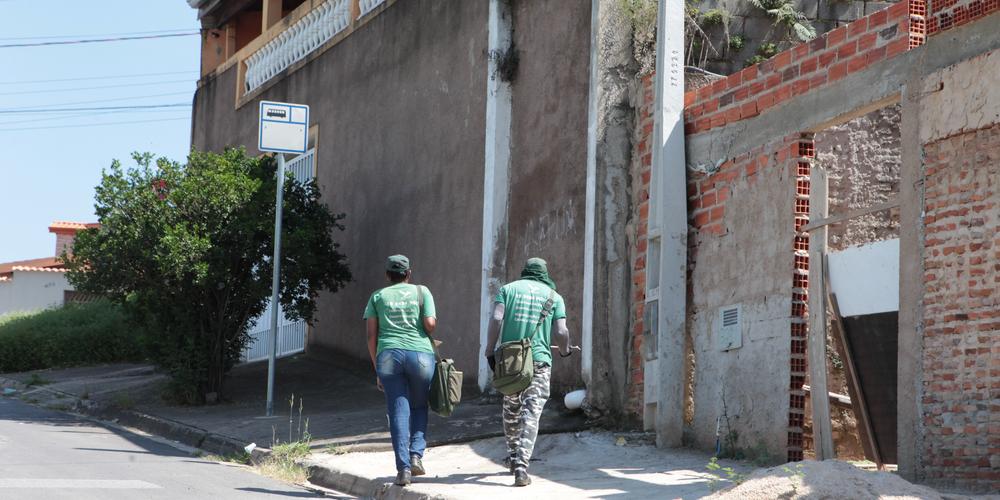The Campinas Health Department has issued a new alert confirming increasing cases of dengue fever in the city, a disease transmitted by the Aedes aegypti mosquito. Four new neighborhoods have been added to the list of high-risk areas: Jardim Rosalina, located in the southwest region; Jardim Yulina, in the north; and Parque Floresta and Parque Itajay, both in the northwest region. The city has previously recorded two deaths due to this epidemic this year. From January 1 to September 5, 9,723 cases of the disease were confirmed.
According to information released in an official statement issued by City Hall, the purpose of this alert is to encourage residents to inspect their homes for potential mosquito breeding sites. The letter states: “The fight against arboviruses requires the cooperation of the entire community. The City Hall maintains a disease control and prevention program, but it is the responsibility of every citizen to contribute properly to the disposal of waste and avoid the formation of multiplying sites.” A survey by the Department of Health Surveillance (Devisa) showed that 80% of breeding sites are located inside homes.
As spring approaches, a season of the year characterized by increased precipitation compared to winter, it is necessary to pay extra attention to preventing the spread of mosquitoes. Preventive measures include getting rid of water accumulated in cans, tires and other objects, in addition to changing the water in plant pots every two days. It is also important to ensure water tanks are properly closed and unused toilets remain completely closed.
Two people tragically died from dengue fever in the first half of this year. The first victim is an 86-year-old man who lives in the area included in the Tacural Health Center, located in the eastern area of the city. He first developed symptoms on February 22 and died on March 4. The second victim was a 67-year-old woman who died on June 15 in a public hospital in Campinas. She lived in the coverage area of Vista Alegre Health Center, located in the Southwest region.
In accordance with the standard procedure for confirmed cases of the disease, the two regions where the deaths occurred immediately took the recommended measures. Reproduction control measures and active search for symptomatic individuals and droplets were implemented, as announced by the city council at the time.
People who experience fever accompanied by headache, body aches or behind the eyes, red spots, vomiting, or abdominal pain should immediately seek health care for evaluation and follow medical advice, as this may be a symptom of dengue fever.
According to Fausto de Almeida Marinho Neto, coordinator of the Center for Arboviruses, Zoonoses and Environmental Determinants of the Department of Health Surveillance (DEVISA), the seasonality of dengue is well defined, and the months with the highest incidences are March, April and May.
“This occurs due to high temperatures and frequent rainfall, which directly affects the cycle of the vector mosquito, Aedes aegypti. With the arrival of cold fronts and low temperatures, in the winter period, there is a gradual decrease in dengue cases because this reduces mosquito activity,” he explained. Thus, it reduces the transmission of this virus.
Prevention measures
Avoid accumulating water, cans, tires and other objects. The water in the plant pots should be changed every two days. Water tanks must be closed. Toilets that are not in use must remain closed.
Source: Campinas City Hall
Related issues
To participate

“Wannabe internet buff. Future teen idol. Hardcore zombie guru. Gamer. Avid creator. Entrepreneur. Bacon ninja.”

